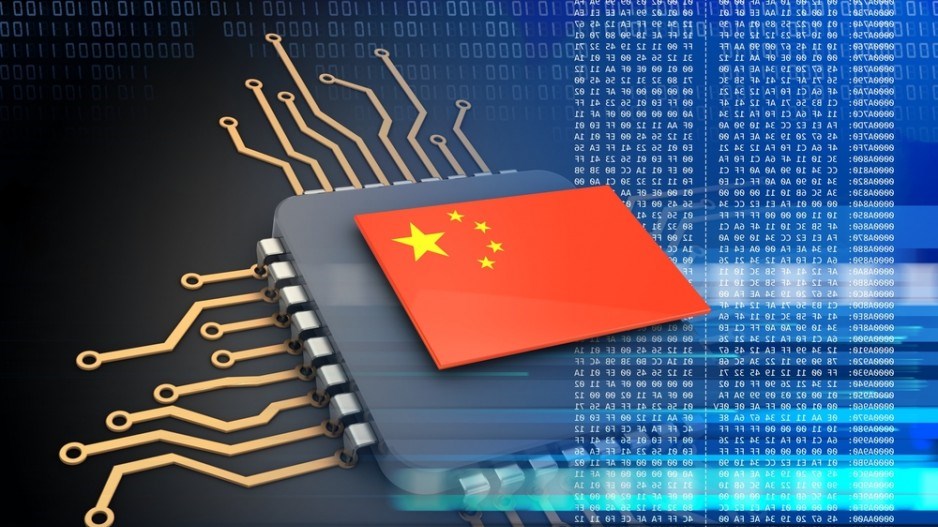Despite a strong overall belief that Asia will drive global technological advancements, Canadians – especially those in B.C. – appear highly skeptical of Asian investment in the domestic tech sector.
That is the finding of a new Asia Pacific Foundation of Canada (APF) poll released on June 12. Canadian Views on High-Tech Investment from Asia surveyed the opinions of 1,506 Canadian adults February 4-15.
The poll is among the first definitive surveys of Canadian attitudes toward tech companies from Asia since the arrest of Huawei Technologies Co. Ltd. chief financial officer Meng Wanzhou, which pushed debate of whether Chinese firms should participate in building Canada’s 5G network into the spotlight.
The report shows that while more than half of Canadians surveyed dispute the benefits of having more high-tech investment from Asia, reactions from British Columbians are especially negative, with 62% believing the government is allowing too much tech investment from China. That number is matched in Ontario, but ahead of the Prairies (60%) and Quebec (54%).
In addition, 59% of British Columbians told the survey the potential benefits of having more Asian investment in Canadian tech do not outweigh the risks. That figure is higher than the number reported in Ontario (51%), the Prairies (56%) and Quebec (48%).
Yushu Zhu, the foundation’s program manager and a leading researcher on the report, added that B.C.’s elevated real estate prices may have played a role.
“One of the reasons we see is the strong association, the strong effect of the perception of Chinese investment on public opinion,” Zhu said. “B.C. is a gateway province, and although we do enjoy strong connections with the Asia-Pacific region when compared to the rest of the country, in the meantime, we also see more incoming investment on things like residential real estate – which has a negative impact on people’s perception of Asian investments overall and Chinese investment in particular.”
As Zhu said, the ire of most Canadians surveyed regarding Asian tech investment in Canada revolves around one market: China.
When the survey asked respondents to identify the probability of them opposing an investment project from three different countries, Chinese projects received the strongest opposition with 64% rejecting support for such projects. The United States (around 32%) and Japan (around 28%) received much less opposition from Canadians.
Similarly, when it comes to the subsector of telecommunications – where the 5G debate is focused – Canadians are most opposed to foreign investment. Respondents showed 51% opposition to such projects, compared with numbers around 37% for clean tech and animation.
The numbers are no coincidence, officials said.
“The high profile of the Huawei case and the controversies it aroused around 5G and telecommunications security could have contributed to the sentiment,” the report noted.
But Zhu added that it is impossible to gauge the exact impact of Huawei on Canadian opinions, because no baseline survey was completed prior to Meng’s arrest on December 1.
Western countries have debated the involvement of Chinese companies such as Huawei in the development of 5G networks over the last year. Some security officials have expressed concern that Beijing can compel companies like Huawei to share information that could compromise national security in Canada, the United States, Australia and other countries.
Beijing officials, meanwhile, have repeatedly levelled thinly veiled threats at Ottawa – after the Meng arrest – to not block Chinese participation in the development of such networks. Officials said the Chinese company invested $180 million in Canada last year and employs 1,100 workers here.
The APF report showed that support for all forms of Chinese investment in Canadian tech was consistently lower than for similar investments from India and Japan. For example, a joint venture with a Canadian firm received only 43% support if the other party is from China compared with 60% support from India and 67% support from Japan.
APF officials, however, cautioned that concerns regarding China shouldn’t deter Canada from continuing to diversify its tech industry into the Asian marketplace.
“As Canadians’ anxiety toward China over the Huawei affair lingers, it is not surprising that this poll picks up on a sense of skepticism about Asian investment in Canada’s high-tech sector, particularly with regard to both Chinese investment and the telecommunications sector,” the report concluded. “This, however, does not undermine the importance of Asia to Canada’s investment diversification – there is a broad consensus that Asia will drive future technological advancement and become more important than the U.S. as a source of capital for Canadian tech business in the foreseeable future.”
Zhu added it is most important for Ottawa to establish clear, transparent guidelines to its national security review process as some of the public opposition to foreign investment shown in the polls reflects a lack of confidence in the federal government’s ability to counter technological threats to national security.
“The results suggest that providing information that addresses specific concerns around projects is really important in shaping public opinion,” she said. •
The full report can be read at asiapacific.ca.




